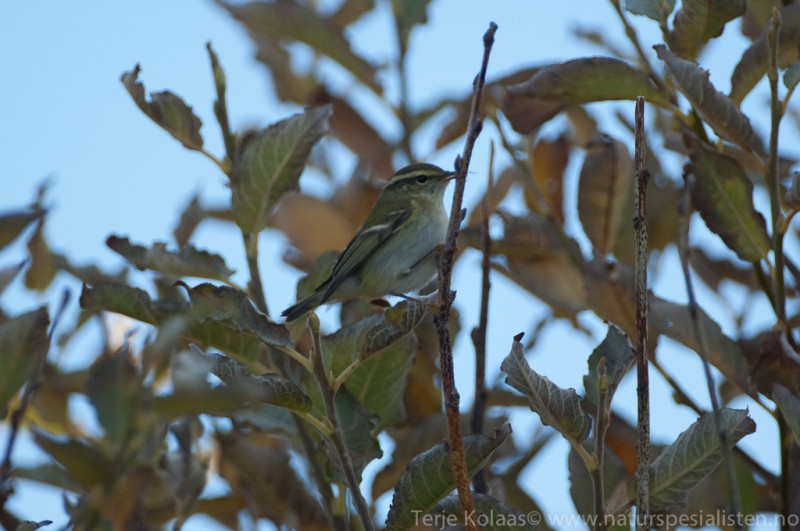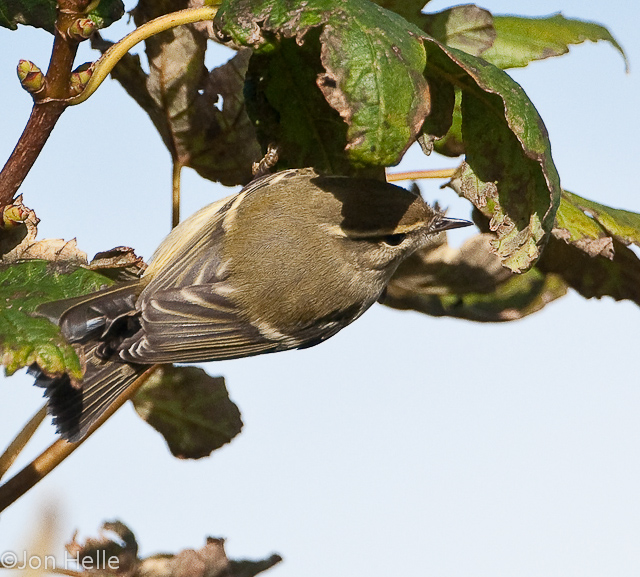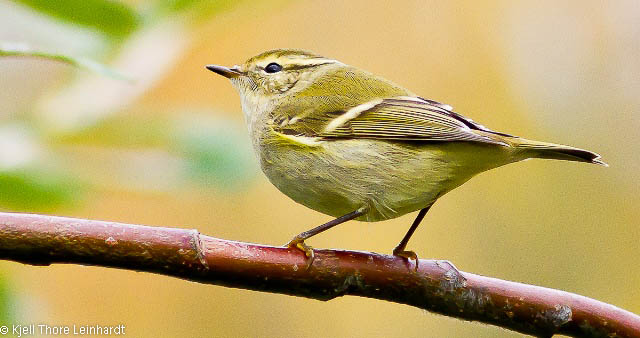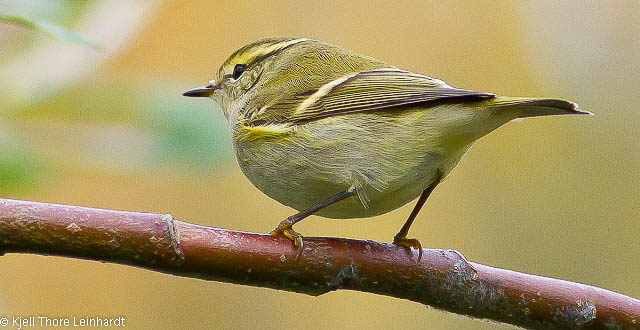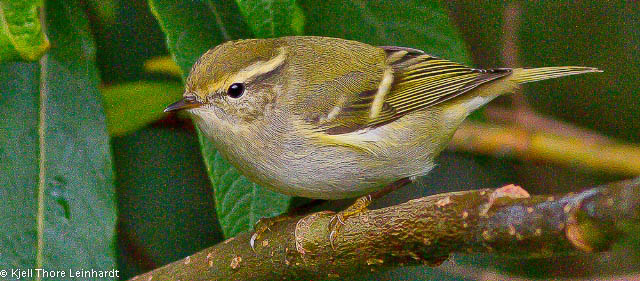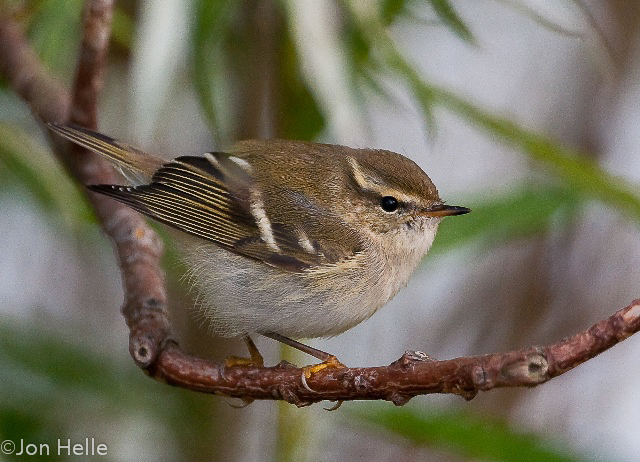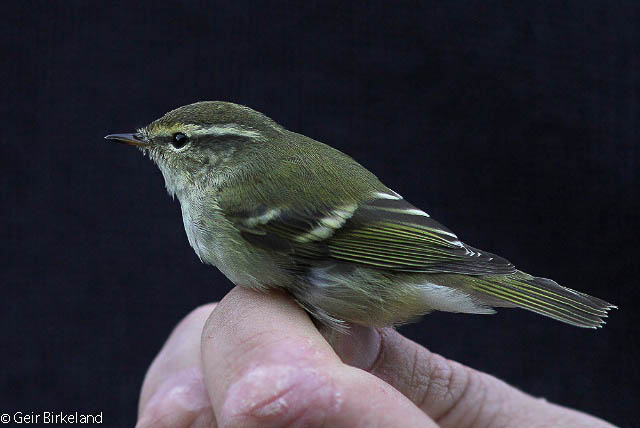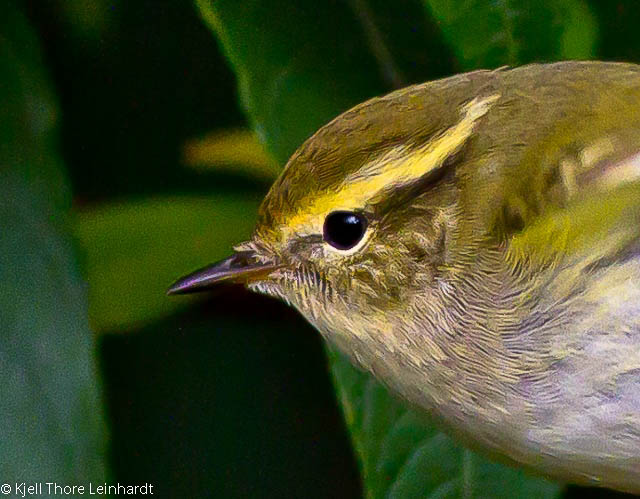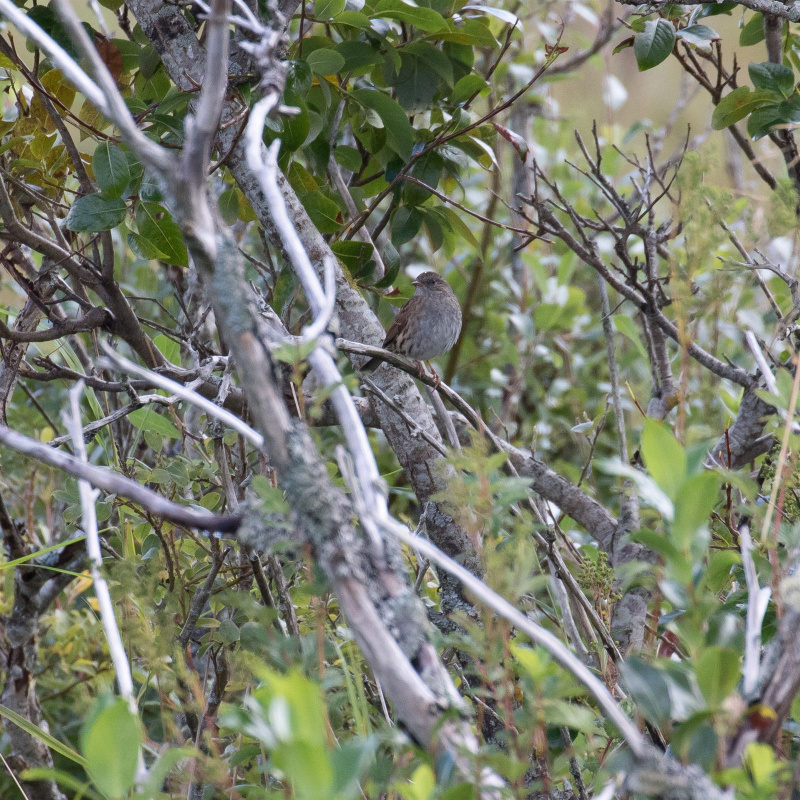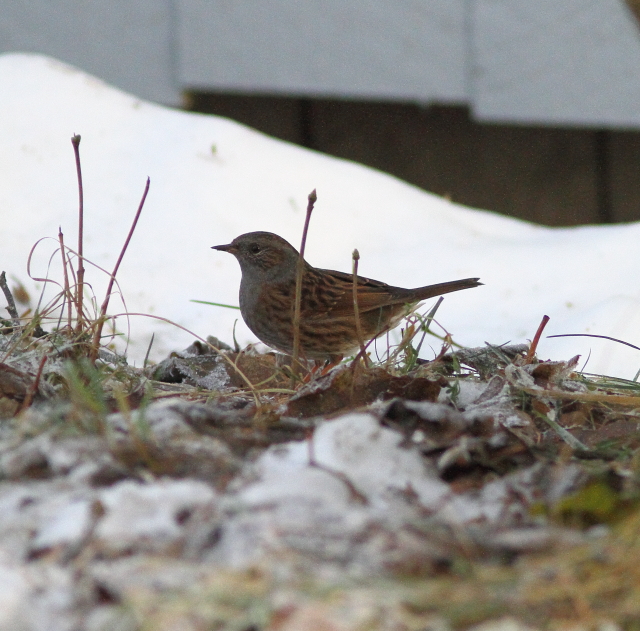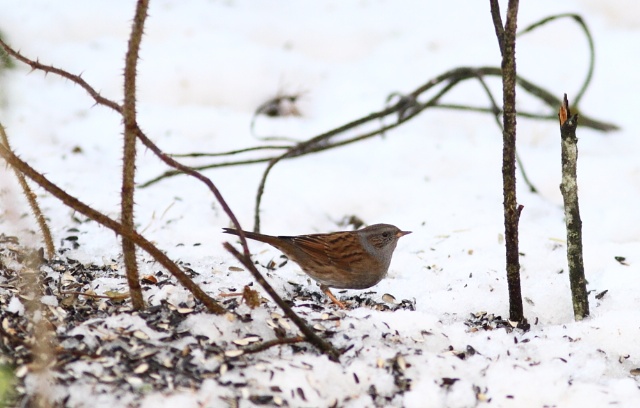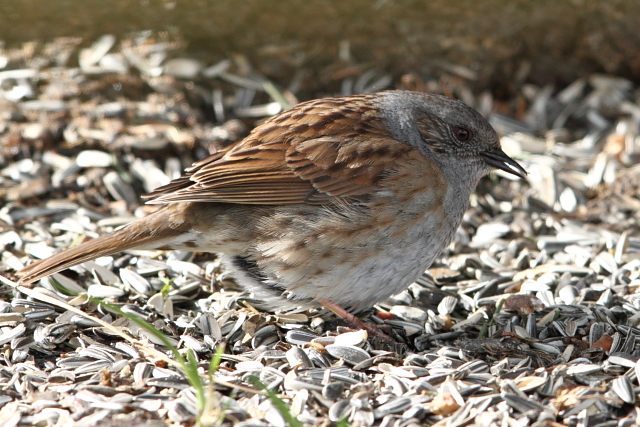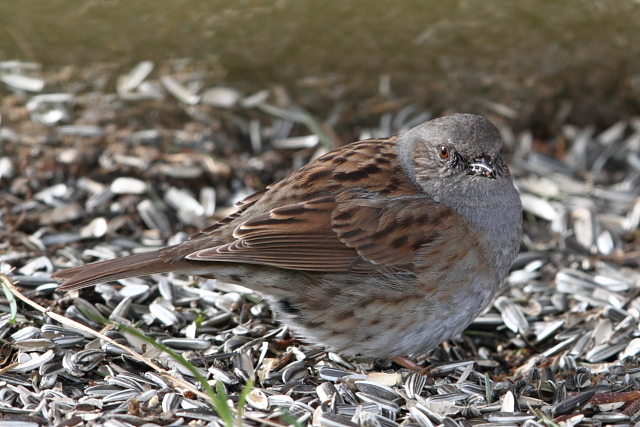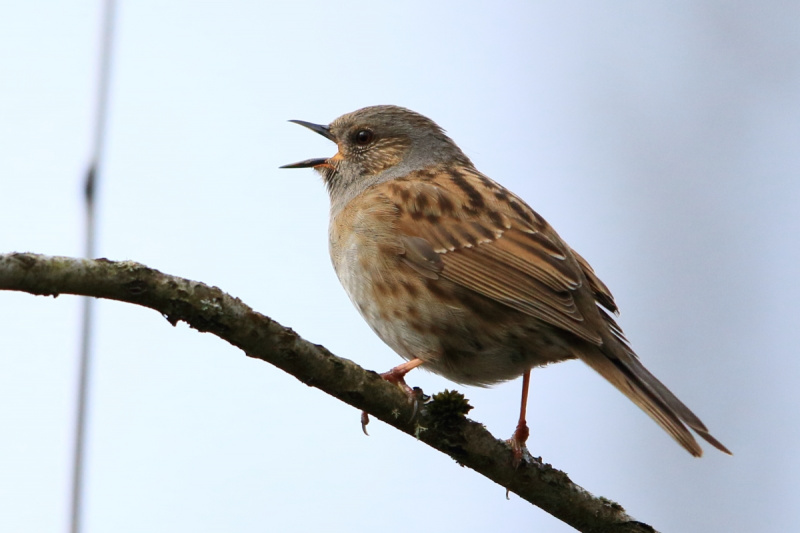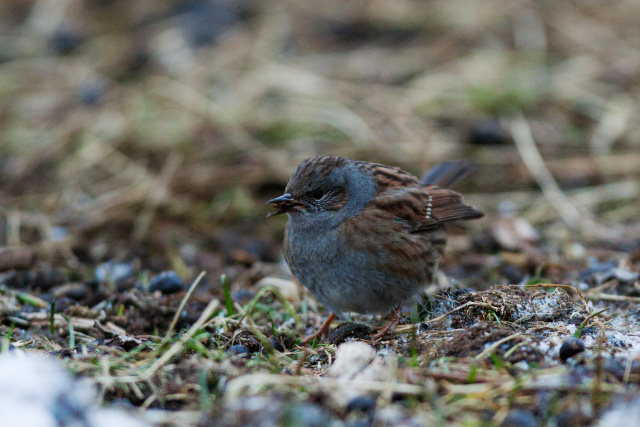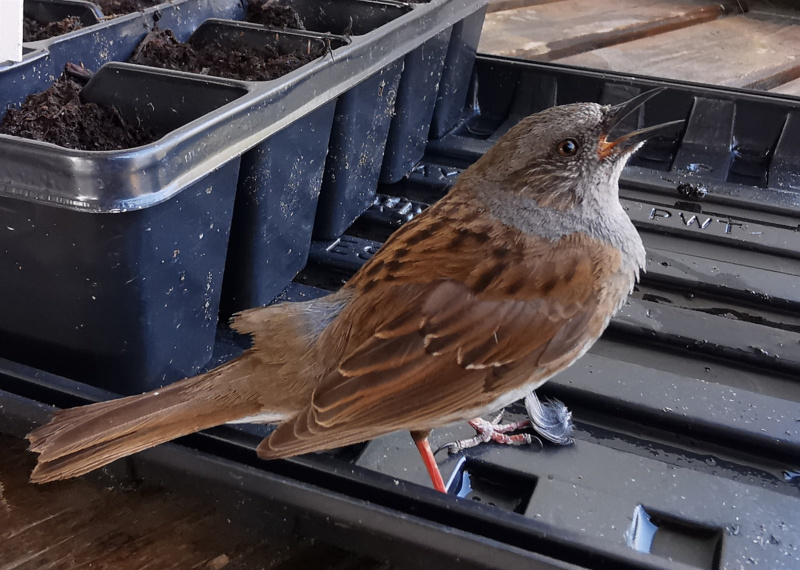Yellow-browed Warbler (Phylloscopus inornatus)
Dunnock (Prunella modularis)
Small and secretive warbler, usually discovered by the contact call. Broad, yellow/whitish wing-bars framed in black, and dark tertials with pale fringes gives the species a contrasting plumage. Long and strong yellow supercilium (lacking the orange base of Pallas' Leaf Warbler). No central crown-stripe. Slightly smaller than a Chiffchaff, with smaller bill and shorter tail. Rump same colour as back (as opposed to Pallas'), and overall greener and more strikingly coloured than Hume's Leaf Warbler (but beware individual variation).
Sound:Contact call and song both distinct. Contact call a very high-pitched "zeeoooee", with pitch rapidly dropping in the middle, and ending on a quickly rising note. Song an ornamented, drawn out, slow-motion version of the contact call, with similar timbre and pitch.
Contact call:
Distribution:
Xeno-canto: map
Ecology:Birdlife ecology
Links:
Observation.org Latest observations
Image search Flickr NB! May give other species
CCCC-photo:Langham Birder, Licence,Link.
Sounds:Recorded by Jelmer Poelstra,http://www.xeno-canto.org ,CC license
Sparrow-sized, brown and streaked passerine with slate-grey head and chest. Bill thin and warbler-like, head rounded. Narrow, pale wing-bars. Often forages on ground in a crouched manner, creeping or hopping with legs almost hidden. Flicks wings and tail when restless. Secretive behaviour, except when visiting feeders and when singing from tree tops.
Sound:Contact call a dry, thick trill "trrr", and a short King Fisher-like, high-pitched "zeep". Song a fast and evenly paced, high pitched stream of clear notes. No consistent phrasing. Similar in timbre to Robin, but does not vary tempo or pitch nearly as much. Often compared to the sound of a squeaky wheelbarrow.
Song:
Distribution:
Xeno-canto: map
Ecology:Birdlife ecology
Links:
Observation.org Latest observations
Image search Flickr NB! May give other species
CC
 English
English Albanian
Albanian
 Armenian
Armenian
 Bulgarian
Bulgarian
 Catalan
Catalan
 Croatian
Croatian
 Czech
Czech
 Danish
Danish
 Dutch
Dutch
 Finnish
Finnish
 French
French
 Georgian
Georgian
 German
German
 Greek
Greek
 Hungarian
Hungarian
 Italian
Italian
 Latvian
Latvian
 Lithuanian
Lithuanian
 Macedonian
Macedonian
 Norwegian
Norwegian
 Polish
Polish
 Portuguese
Portuguese
 Romanian
Romanian
 Russian
Russian
 Sami : Lule sami
Sami : Lule sami
 Sami : North sami
Sami : North sami
 Sami : South sami
Sami : South sami
 Scientific names
Scientific names
 Serbian
Serbian
 Spanish
Spanish
 Swedish
Swedish
 Ukrainian
Ukrainian


